As CBD becomes increasingly popular for its many wellness benefits, there seem to be more and more ways to use CBD too. There are CBD oils, gummies, teas and cocoas, smoking blends, bath salts and soaks, soaps, and CBD inhalers.
A new method has hit the market: CBD nasal sprays.
Here at the Apothecary, we are always excited about the possibilities of a new way to enjoy CBD. While the wellness benefits of CBD remain largely consistent from one form to another, different methods of intake can offer varied absorption rates, length of time the CBD stays within your system, and the specific use it may be best suited for.
So, how does CBD nasal spray hold up? How does this form of administration compare to others? And how can you know if a CBD nasal spray may be right for your unique wellness needs? Read on to learn about this intake method with The Brothers Apothecary!
What Is CBD?
CBD is one of the phytocannabinoids found within cannabis and hemp plants. While there are over 100 known cannabinoids within these plants, CBD (cannabidiol) is the most active cannabinoid in hemp and one of the most heavily researched phytocannabinoids overall.
CBD can provide wellness benefits by working with the body’s endocannabinoid system, also known as the ECS. The ECS has cannabinoid receptors, naturally produced endocannabinoids, and enzymes.
The ECS is an internal communication network that gets to help keep our everyday biological functions operating within normal range.
For instance, if we are experiencing high levels of stress or intense discomfort somewhere in the body, the ECS will produce endocannabinoids that interact with cannabinoid receptors. This can activate certain natural biological functions to help restore bodily homeostasis.
Once the endocannabinoids have provided support, they are broken down to their original form by enzymes. This is where CBD comes into play.
As a phytocannabinoid, CBD can work within the endocannabinoid system to support its work. Rather than binding directly with receptors to provide relief on its own, CBD can support our overall wellbeing by helping to promote the natural relief our own endocannabinoids can provide.
On top of that, CBD can help calm the mind, ease feelings of tension, and support a good night’s sleep by aiding our endocannabinoid system in all of the regulatory processes it’s involved in every day.
How Is CBD Made?
CBD is most commonly extracted from the hemp plant, a Cannabis sativa plant with high levels of CBD and low levels of THC. The hemp plant’s buds, leaves, and flowers contain high concentrations of CBD for a wide range of CBD products.
While the dried buds and leaves of the hemp plant can be used for CBD teas or smoking blends, the cannabinoids can also be isolated and extracted from the plant through a process called supercritical CO2.
This method uses high temperatures and pressure to cause carbon dioxide to break down and dissolve parts of the hemp plant. The CBD can be extracted and added to a carrier oil or incorporated into gummies, topicals, or more.
Is CBD the Same as Cannabis?
While CBD is found in cannabis, the two are not quite interchangeable in how they’re talked about.
CBD is found in hemp and other types of cannabis plants, and is one of the most active ingredients in the beneficial hemp plant. While hemp is a type cannabis plant, hemp and other types of cannabis vary greatly in their legal definition.
Any type of cannabis plant that contains less than or equal to the federally legal limit of 0.3 percent THC by dry weight is considered hemp. Hemp and hemp-derived CBD were federally legalized in the 2018 Farm Bill.
Meanwhile, any cannabis plant containing more than 0.3 percent THC by dry weight is often referred to directly as cannabis (as opposed to hemp), and products derived from these types or cannabis plants are currently not legal at the federal level. So far, 19 states have legalized recreational cannabis use, while CBD use is legal in almost every state.
Is CBD Legal?
The 2018 Farm Bill legalized hemp-derived CBD with less than the federally legal limit of THC at the federal level, meaning that any hemp-derived CBD product made from a plant with no more than 0.3 percent THC by dry weight content is considered federally legal.
CBD is not considered a psychoactive substance and won’t cause a high or alter the mental state.
What Are the Health Benefits of CBD?
By working with endocannabinoids to help maintain homeostasis within the body, CBD can help provide several health benefits.
CBD and Emotional Wellness
One of the main reasons people use CBD is to help soothe feelings of stress or emotional anguish. CBD can maintain the natural effects of the endocannabinoid anandamide, aptly nicknamed “the bliss molecule” for its ability to support a positive mood and feelings of pleasure.
CBD can help support a positive mood and soothe feelings of nervousness or overwhelm by working with our body’s natural feel-good molecules and neurotransmitters.
CBD and Sleep
CBD may have your back if you find yourself tossing and turning as those nighttime minutes tick by.
Sleep is a vital biological function, which means that as a communication center for homeostasis, our natural endocannabinoid system plays a role in making sure we’re getting our eight hours a night.
Anandamide can help support a good night’s sleep by supporting adenosine levels, which is a chemical that can slow down the activity of neurons and maintain our sleep drive as it builds in the body throughout the day.
CBD can help settle the mind, support good sleep, and maintain sleep quality when taken before bed those nights when you need a hand getting those good ZZZ’s.
What Is CBD Nasal Spray?
Alright, so we know that CBD can provide many wellness benefits, but how is this done through a nasal spray?
Unlike CBD products that are consumed, smoked, or applied topically, a CBD nasal spray sends CBD into the body through the nose. CBD nasal sprays often contain a carrier oil like those found in traditional CBD oils such as organic coconut MCT oil and may include other moisturizing ingredients and flavoring.
CBD nasal spray can contain full-spectrum CBD (which contains all of the nourishing plant compounds found in hemp including a trace amount of THC), broad-spectrum CBD (which contains all of the plant parts except THC), or CBD isolate (which is pure CBD with no other hemp cannabinoids, terpenes, or flavonoids included).
Like other forms of nasal sprays, such as decongestants or saline sprays, CBD nasal sprays are a type of aerosol product that come out as a mist.
Once sprayed into the nose, the CBD can quickly reach the bloodstream as it absorbs through blood vessels in the nose.
What Is CBD Nasal Spray Used For?
A CBD nasal spray can provide similar benefits as other forms of CBD, such as supporting natural feelings of relaxation, soothing feelings of tension and discomfort, and helping you get a good night’s sleep. However, one of the main draws of CBD nasal spray is how quickly it can provide these benefits.
Because the nasal mucosal membrane includes blood vessels, the CBD from a nasal spray can provide a better absorption rate as it is quickly and effectively absorbed into the bloodstream without any amount lost to first-pass metabolism in the liver, as what happens with ingestible CBD.
Because CBD nasal sprays bypass the digestive tract, a smaller dose can provide stronger and long-lasting effects. These effects can kick in within 10 minutes to provide almost immediate effects. By contrast, CBD that is consumed orally may take an hour to kick in.
CBD nasal spray is usually formulated with a blend of ingredients that can help soothe feelings of discomfort or tension in the head, sinuses, and nasal passage as the cannabinoids are absorbed quickly through the nearby blood vessels.
Some CBD nasal sprays may also contain soothing emollients, such as aloe vera or vitamin C, to help moisturize the nasal lining and open the nasal passage, which may also soothe feelings of nasal congestion.
Is CBD Nasal Spray Safe?
CBD is considered extremely safe, with rare, typically mild side effects that dissipate on their own.
Most reported side effects of CBD, such as nausea, fatigue, vomiting, or dizziness, only occur when taken in extremely high doses. Because CBD nasal sprays have a premeasured dose of CBD, there is little risk of side effects if taken correctly.
If using a CBD nasal spray, make sure you don’t exceed the recommended dose found on the label and that you only use sprays from reputable manufacturers that undergo third-party testing.
To avoid potential complications, speak to a healthcare provider if you have questions about using a CBD nasal spray.
How Much CBD Is in Nasal Spray?
The amount per CBD found in nasal sprays can vary, but a typical spray can have 100 mg to 200 mg of CBD per bottle, and a common dose ranges between 0.5 mg to two mg of CBD per spray.
It is important to remember that CBD administered through nasal spray may be more potent than other forms of CBD due to this method’s high bioavailability. So even if you are used to consuming larger doses of CBD, don’t exceed the recommended dose of your CBD nasal spray!
A typical dose would be one spray per nostril no more than two times a day, which for most people will be more than enough to feel the soothing effects of CBD.
How To Use CBD Nasal Spray
Using a CBD nasal inhaler is similar to using a saline nasal spray. Simply shake well and prime by squirting the spray until you see a fine mist coming out of the bottle.
Then, place the spray nozzle at the tip of your nostril, and squirt once while gently sniffing through the nose. Make sure you sniff in gently rather than snorting in as you spray the CBD nasal spray.
Does CBD Nasal Spray Work?
Early evidence regarding CBD nasal spray’s absorption rate and bioavailability is promising!
However, CBD nasal spray isn’t any better or worse than other forms of CBD. As long as your CBD product is combined with a carrier oil or effective emulsifiers, your intake method depends on your personal preferences.
What’s the Best Way To Use CBD?
How you use CBD depends on what you are using this soothing cannabinoid for.
For instance, if you want quick and full-body support, a CBD nasal spray, oils or tinctures taken sublingually (under the tongue), or a CBD smoking blend are all ideal options as they bypass the digestive tract and are absorbed quickly into blood vessels in the nose, mouth, or lungs.
On the other hand, many prefer the long-lasting effects of edible CBD, such as CBD gummies, honey, teas, or cocoa. While the relaxing effects of CBD edibles may take longer to kick in as the CBD passes through the digestive tract, many find this intake method the most fun, tasty, and enjoyable.
And if you are hoping to soothe localized discomfort, a CBD topical or bath soak can be helpful to soothe feelings of soreness and achiness in the muscles or joints.
The Bottom Line
CBD nasal sprays can provide an easily absorbed and highly effective dose of CBD benefits, even in small amounts. By pairing CBD with moisturizing compounds, CBD nasal sprays can provide all of the calming and comforting benefits of CBD directly to the nasal passage.
While CBD nasal sprays are still relatively new and undergoing more research, there are plenty of other ways to benefit from CBD!
You can find a wide range of botanical-based CBD oils, gummies, smoking blends, teas, topicals, and more at The Brothers Apothecary shop!
Sources:
Brain activity of anandamide: a rewarding bliss? | PMC
Adenosine–cannabinoid receptor interactions. Implications for striatal function | PMC
The Science of Sleep | American Chemical Society
Jesse Richardson is the co-founder of The Brothers Apothecary. He's an avid tea drinker and the primary creator behind The Brothers' products. An undergraduate of UCLA for Political Science, Jesse currently studies Medicinal Plants at Cornell University and The International School of Herbal Arts & Sciences.



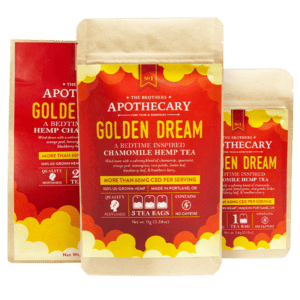
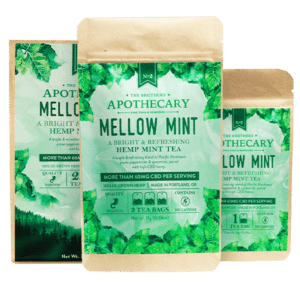
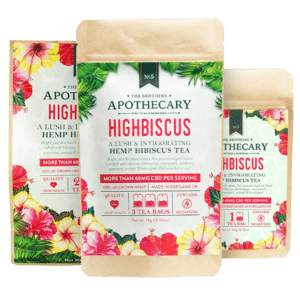
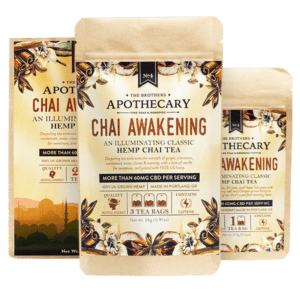

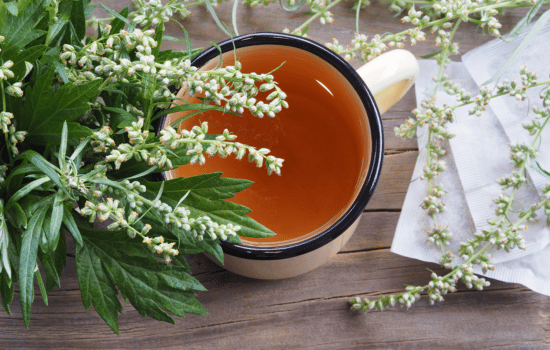
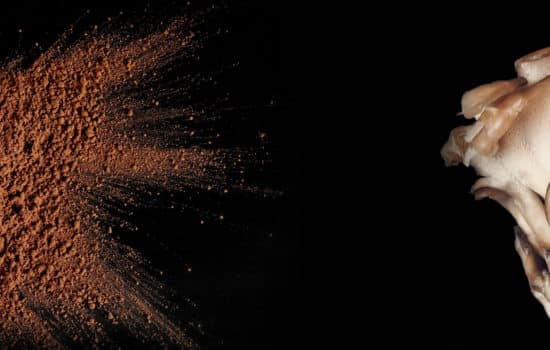

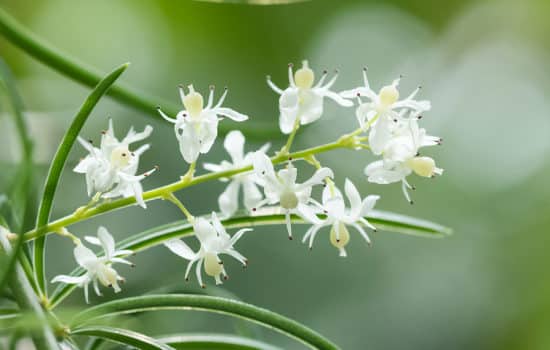
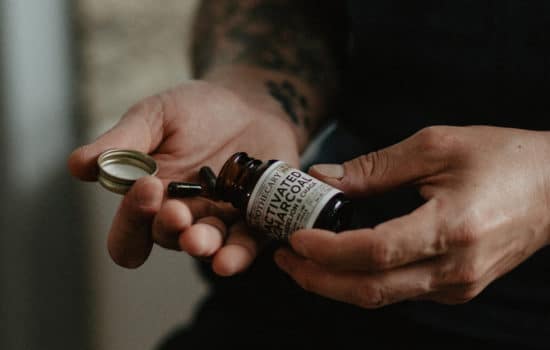
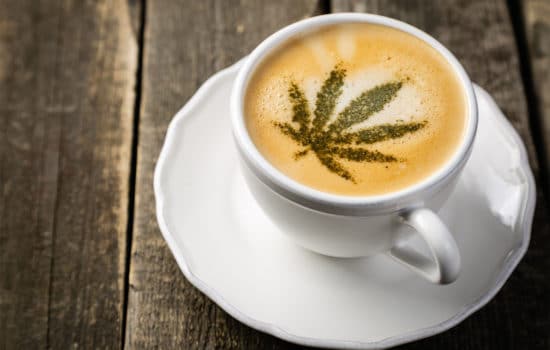





One thought on “CBD Nasal Spray: Does It Work?”
where can i get a good quality cbd inhaler – i’ve been giving my husband cbd oil under his tongue (sublingual) for glioblastoma –
i am throwing EVERYTHING at this – in studies, i’ve found they used an inhaler, so i’m looking to go that route, too –
i’m currently giving him cbd, black seed oil and when it shows up, tumeric curcumin – i had to wait on the tumeric, since the so-called docs, who have utterly abandoned us, (told him “go home and die”) had him on dexamethasone for cerebral edema and taken together could kill him… not the goal, here – it took almost two months to wean him off the dex and the side effects have been devastating and that was a “proper” wean –
any information you could impart my direction would be greatly appreciated –
thank you,
ginger